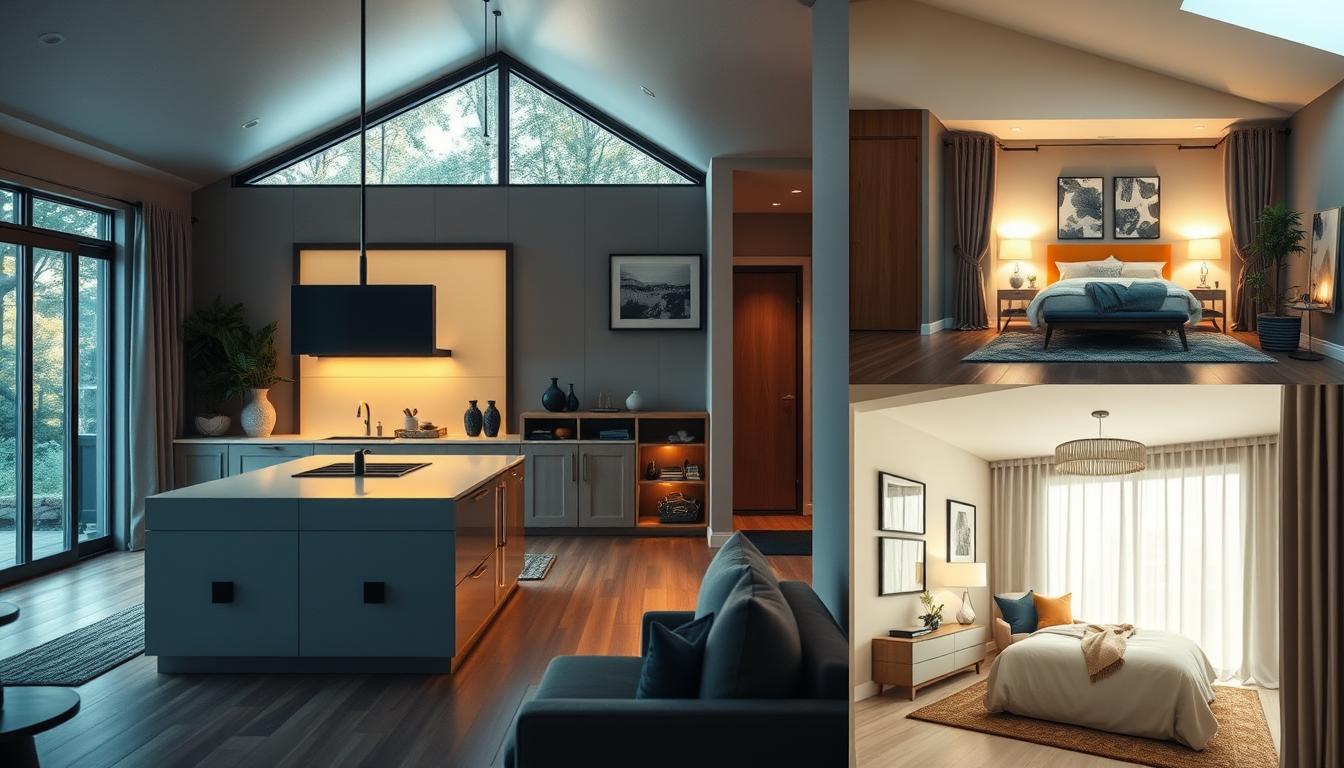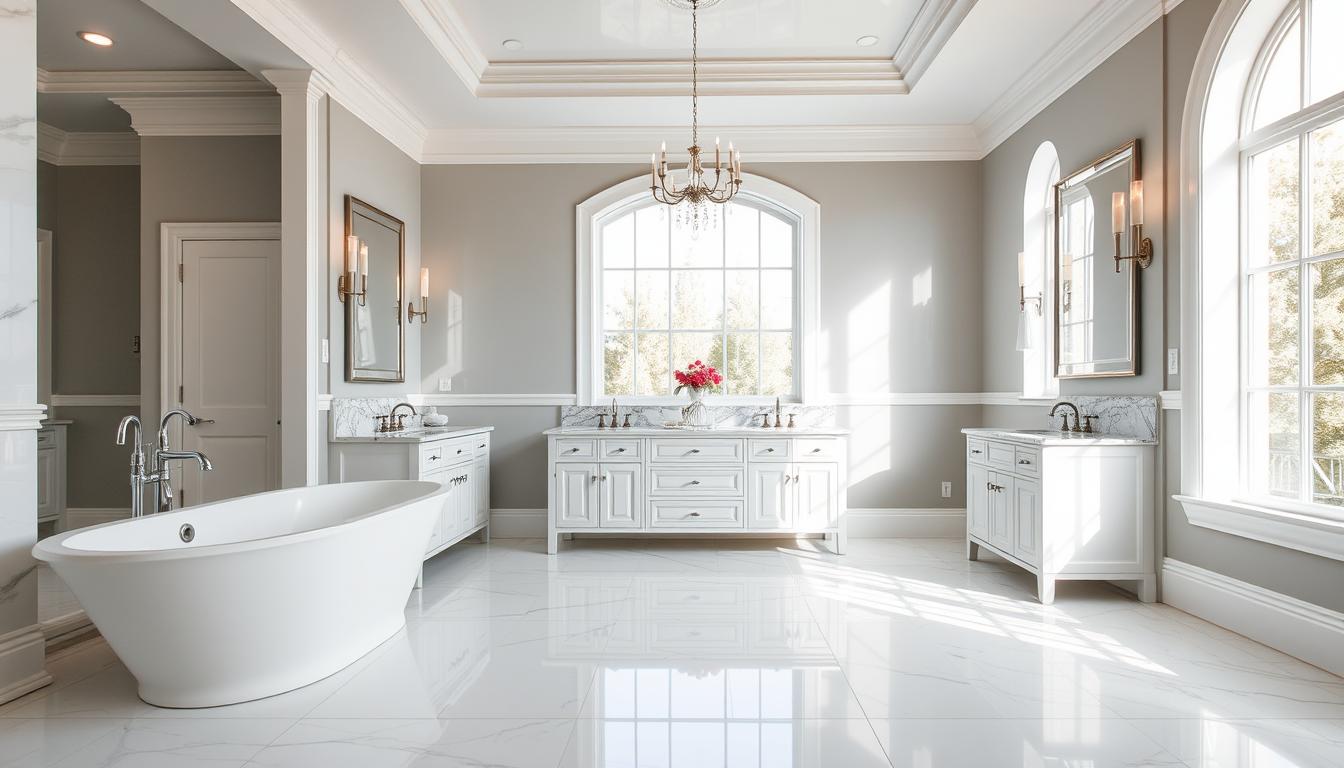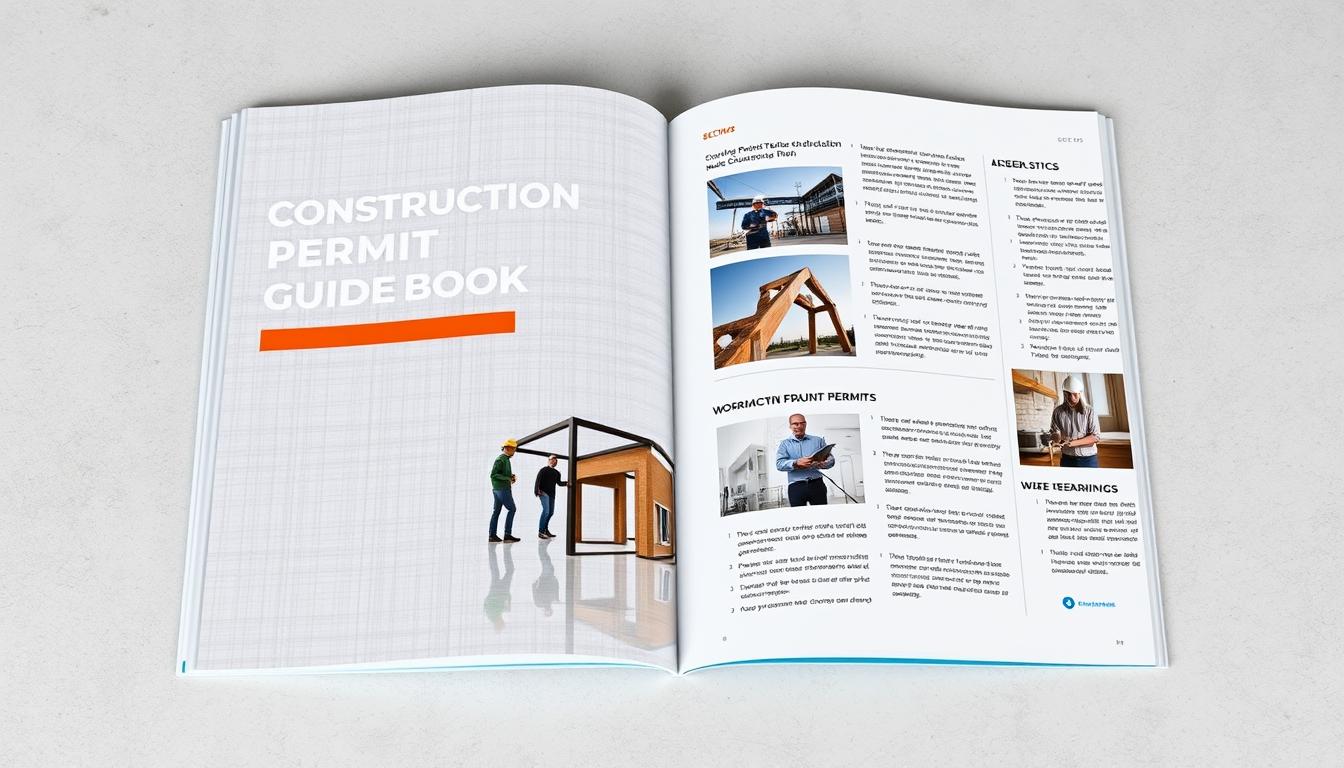Construction projects vary greatly, with residential and commercial being two main types. JFerguson Construction excels in both, creating spaces tailored to community needs in Chico, CA.
Residential construction is all about making homes for people. On the other hand, commercial construction is for businesses and workspaces. Each type needs its own set of skills and knowledge.
Knowing the differences between residential and commercial construction is key. It helps owners, developers, and investors make better choices. From materials to design, these projects have their own rules and goals.
Key Takeaways
- Residential construction creates living spaces for families and individuals
- Commercial construction develops buildings for business and professional use
- Each construction type has unique regulatory and design requirements
- Specialized expertise is crucial for successful construction projects
- Local contractors like JFerguson Construction provide tailored solutions for different construction needs
Understanding Basic Definitions and Project Types
The construction industry has two main types of projects: residential and commercial buildings. Each type has its own design, function, and purpose. Knowing these differences helps professionals and clients understand the complex world of construction better.
Residential buildings are homes for people and families. They can be small or big. The main goal is to make homes safe, comfortable, and meet the needs of those who live there.
Common Residential Building Types
- Single-Family Homes: Standalone structures designed for one household
- Condominiums: Individually owned units within a larger complex
- Townhouses: Connected multi-level homes sharing walls with neighboring units
- Apartment Buildings: Multi-unit residential structures with shared common areas
Common Commercial Building Types
Commercial buildings are for businesses, institutions, and public use. They are built for efficiency and specific needs.
- Office Spaces: Professional work environments for various industries
- Retail Stores: Spaces for selling products and services
- Healthcare Facilities: Hospitals, clinics, and medical centers
- Industrial Complexes: Manufacturing and warehouse facilities
- Large Apartment Complexes: Multi-unit residential properties often classified as commercial investments
Residential and commercial buildings are different in design and purpose. Yet, both are vital in the construction world. Each project needs special knowledge, unique building methods, and careful attention to rules.
Building Materials and Structural Differences
The construction industry uses many materials to make buildings strong. Homes and businesses need different materials and designs.
For homes, timber frame construction is common. Wood is good for building homes because it:
- Is cheaper
- Is light and easy to handle
- Keeps buildings warm or cool
- Is easy to find in the US
Big buildings need stronger materials. Steel and concrete are used for their strength. They help buildings stand tall and strong against weather.
There are big differences in how buildings are built:
- How much weight they can hold
- How far they can span
- How well they last over time
- If they meet local building rules
Choosing materials affects how long a project takes, how much it costs, and how well it works. Architects and engineers pick materials to make sure buildings are safe and strong.
Builders need to know about these differences. They must use the right materials for homes and big buildings in different places.
Residential vs Commercial Construction: Permits and Regulations
Understanding construction regulations is key. Both residential and commercial projects face unique challenges. The rules for building are strict and different for each type.
Building codes and permits are crucial for any project. Residential builds have simpler rules. But, commercial projects need a detailed approach to follow the rules.
Building Code Requirements
Commercial projects have stricter building codes than homes. These rules cover important areas:
- Safety standards for public spaces
- Accessibility requirements
- Advanced structural integrity checks
- Environmental impact assessments
Permitting Process Complexities
The permitting process changes a lot between homes and commercial buildings. Commercial projects need:
- Multiple layers of governmental approval
- Detailed site plan reviews
- Comprehensive environmental impact studies
- Specialized inspections at multiple project stages
Local rules can greatly affect project timelines and budgets. Developers must carefully follow these rules to finish projects successfully.
Knowing these detailed regulations is vital. Architects, developers, and managers need to understand them. This helps avoid delays and problems with following the rules.
Cost Factors and Funding Sources
Knowing about construction costs is key for anyone in the building world. The cost of building homes and commercial spaces varies a lot. Commercial projects need much more money than homes.
What affects construction costs includes:
- Material quality and complexity
- Labor specialized skills
- Project scale and complexity
- Geographic location
- Regulatory compliance requirements
Residential building costs are between $100 to $200 per square foot. Commercial projects can go up to $300-$500 per square foot. These differences come from different needs, advanced engineering, and detailed designs.
Funding for homes and commercial buildings is different:
- Home funding usually comes from:
- Personal savings
- Mortgage loans
- Home equity lines of credit
- Commercial funding includes:
- Corporate investments
- Commercial real estate loans
- Private equity
- Venture capital
Dealing with these financial issues needs careful planning. It’s important to understand the unique money matters in the construction world.
Equipment and Construction Methods
The construction industry uses special equipment for different types of projects. Residential and commercial projects need unique machines and methods to succeed.
Commercial projects need big, heavy machines for large buildings. These tools help with complex work and finish projects fast.
Critical Equipment Considerations
- Commercial projects demand large-scale earthmovers
- Crane systems are essential for multi-story structures
- Specialized welding and fabrication equipment
- Advanced surveying and measurement technologies
Residential construction uses smaller, versatile tools. It includes small power tools, basic excavation machines, and light lifting gear.
Technology Transforming Construction Methods
- Drone surveying for precise site measurements
- 3D printing technologies for rapid prototyping
- Advanced computer-aided design (CAD) systems
- Automated machinery reducing manual labor
Construction workers must keep up with new technologies. Knowing the differences in equipment helps manage projects well and saves money.
Project Timeline and Management Considerations
Construction management is key to a project’s success. Different projects need different scheduling and team coordination. Commercial and residential projects have big differences in their timelines and complexity.
Commercial projects need detailed planning and strict deadlines. They have many phases and require advanced management. Important things to consider include:
- Complex stakeholder coordination
- Rigorous timeline tracking
- Advanced risk management protocols
- Comprehensive quality control systems
Residential projects have more flexible timelines. Homeowners work closely with contractors, allowing for flexible scheduling. The personal nature of residential projects enables more dynamic decision-making processes.
Good construction management needs detailed planning, clear communication, and solving problems quickly. Successful managers use strong tracking and keep all team members informed.
- Develop comprehensive project schedules
- Create detailed communication plans
- Implement regular progress assessments
- Establish contingency strategies
Knowing the differences in managing commercial and residential projects helps professionals do better. They can deliver successful projects more efficiently.
Conclusion
Knowing the differences between residential and commercial construction is key for success. Each type needs its own approach, from choosing materials to following rules. It’s all about the details for the best results.
There’s more to it than just building structures. Managers and owners must think about zoning laws and what equipment is needed. Whether it’s a home update or a new business space, knowing these differences is crucial.
JFerguson Construction is here to help in Chico, CA. They know both residential and commercial projects inside out. Call them at (530) 680-6228 for help with your construction needs.
Choosing the right construction method is all about careful thought. By understanding the differences, owners can make smart choices. This leads to successful and quality building projects.







